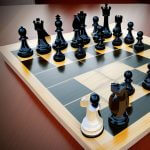11 Tips To Improve Your Reading Skills

Know the purpose of the reading
Before you ever begin to read anything about the subject, have an understanding of what your purpose is. While the overarching purpose may be “to get a good grade,” you need to look for something deeper. Start with the chapter title, then move on to subchapter headings and try to get a sense of what the author wants you to know from the topic you’re about to dive into.
Review what you already know about the topic
In the pre-reading stage, you may also want to make a list of the things that you already know about the given topic (or at least what you think you know and are comfortable enough to articulate). This doesn’t mean you have to be rigid in your understanding. It’s entirely possible that you will encounter information in what you’re about to read that adds to or takes away from your understanding. It’s also probable that the new information will evolve your understanding so that you see how a topic can grow more complex the further you go into it.
Glimpse the big picture
You wouldn’t drive to a destination for a major event without any sense of direction. It’s always best to know the endgame for what you’re about to do. Start at the end, and you’ll never lose sight of where you’re going. This is just as effective of a mindset in reading as it is for road trips. If you know what you’re reading towards, then it will become easier to synthesize what you know with what you learn along the way.

Anticipate what the author will say next
Using your understanding and where you are in the present text to make predictions about what is to come is a useful exercise in that it invigorates the mind and makes it more susceptible to multiple possible outcomes. The beauty of this tip is that it’s okay if you’re wrong in your predictions. The “win” is in being able to see where you’re wrong (or where you’re right). By activating the part of your brain that draws conclusions, you will be open to all possibilities.
Note new questions that occur to you as you’re reading
Don’t read until a question arises and then stop and seek the answer to that question. You need to keep going and get immersed in the context of what you’re doing. The best way of doing that is to allow your brain to ask questions as you’re reading. It’s probable many of those questions will be answered the more attuned you are to the text. If you do feel the need to get the questions out of your head and into the physical world, just jot them down free hand and try not to allow a large break in the reading. Questioning is a great practice for reaching deeper levels of understanding through a written passage.
Determine what is important
The more you read, the easier it will become to pick out the main idea of what you’re reading — not just for the passage as a whole but also for individual paragraphs. The closer you can get to determining relevant information, the faster you’ll be able to read because your mind will be zipping along to the important keywords of the text and filling in the lesser text — articles, conjunctions, etc. — without feeling the need to enunciate every syllable.
Paraphrase or summarize as much as possible
As you continue on with your reading, it’s a good practice to try and paraphrase or summarize what you’ve just read into as few words as possible. At first, you might try writing out those summaries by hand at the end of an individual subsection, but as with anything, the more you do it the easier it’ll be to keep all of that internal. By continually rephrasing the passage in your head and drilling down for the main points, you’ll become a reader, who doesn’t get lost in the words.
Organize your findings
Most text isn’t written in a linear fashion. If that were the case, most textbooks would be written like how-to manuals. They’re not. It’s often up to you to take what you read in each chapter and subsection and self-organize to the point that you see how everything works together. This is no different from organizing your notes after a series of lectures. By grouping relevant information together, you’ll reform your understanding of the text and become a stronger reader.
Try visualizing
Most writing — whether commercial or academic — is concrete and visceral. It paints a picture in your mind. Textbook language? Not so much. Sometimes you have to cut through the jargon and get a mental image in order to understand important concepts. While most textbooks are good about including visual imagery to go along with explanations of difficult concepts, you can’t always have the textbook in front of you, so it’s a good idea to try and make images in your head with the information given.
Look for a hook to help you remember
This is a fun and often illogical part of reading, but it works. The human brain is capable of finding hooks in text, even where the author never expected it was possible. One example of what we’re talking about here, is the method of making mnemonic sentences out of information in order to retain. For instance, the planets: “My very energetic mother jumps skateboards under Nana’s patio,” can help you remember the placement of planets from the sun within our solar system. (Mercury, Venus, Earth, Mars, Jupiter, Saturn, Uranus, Neptune, Pluto.)
Connect what you’ve read to what you know already
Making connections while you’re reading is one of the best ways to retain new information and solidify what is already in your brain. When making connections to a text, there are three kinds: text-to-self (or how the text reminds you of your own life); text-to-world (or how what you’re reading relates to something you read or heard on the news); and text-to-text (or how the current reading relates to another written work).
In Summary
Honing your reading skills will make all the difference in comprehending difficult subject matter and making you a force to be reckoned with whether you go to college or pursue a useful trade. By adopting each of the tips above, you’ll be well ahead of others in your class and globally competitive.








